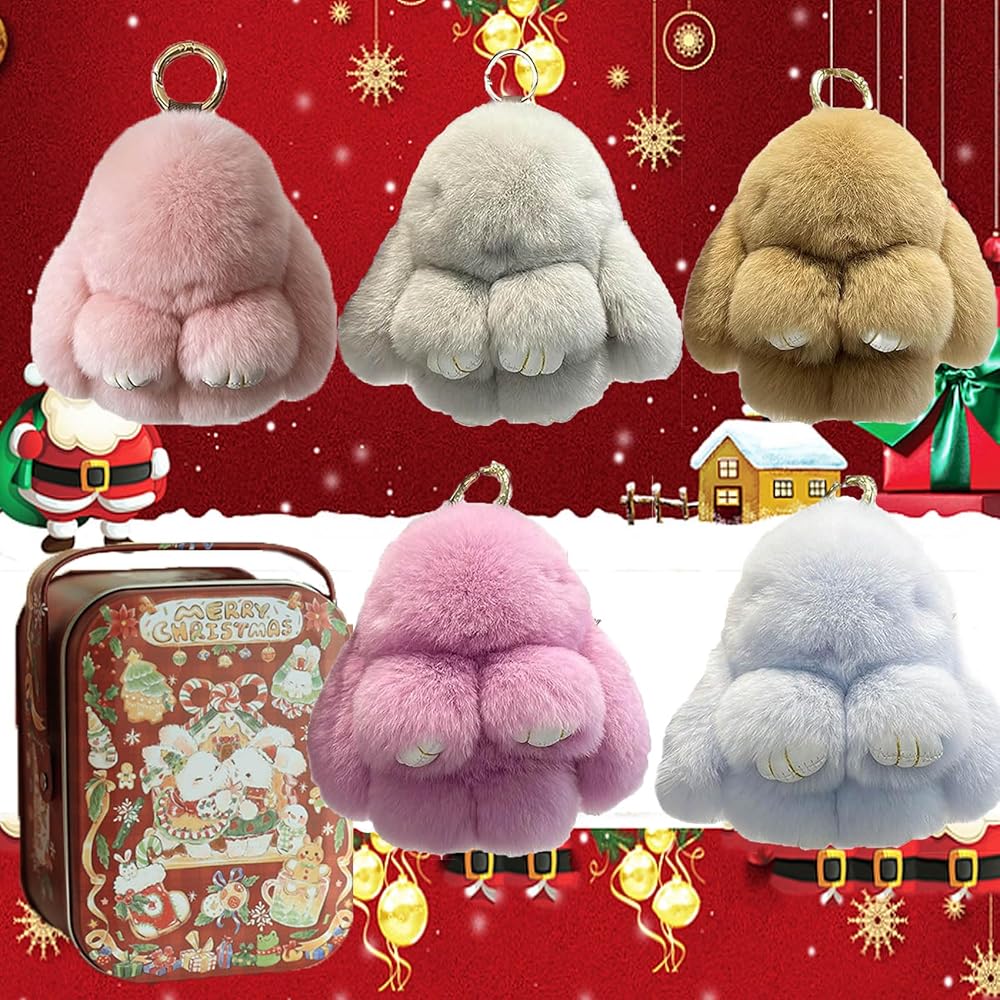In recent months, BunnyLulu, a brand popular for its small, decorative bag charms marketed toward fans of “kawaii” fashion, has come under intense scrutiny for its use of real rabbit fur. While marketed as cute and collectible accessories, evidence suggests that many BunnyLulu charms are made from genuine rabbit fur, not faux alternatives. This revelation has sparked concern among animal rights advocates, consumers, and organizations like PETA, highlighting the ongoing ethical dilemmas in the global fur trade.
For more on ethical wildlife treatment and animal protection, visit Sustainable Action Now: Abuse of Animals & Wildlife.
Evidence and Allegations of Real Fur Use
The claims against BunnyLulu primarily center on consumer reports and investigative findings:
- Customer Testimonials: Shoppers on platforms like Amazon, Temu, AliExpress, and eBay have shared observations that the charms are made of real rabbit fur. Some have described concerns about the animals’ treatment during production, raising questions about humane practices.
- PETA Campaigns: PETA has publicly condemned BunnyLulu, sharing images and videos purportedly showing the process used to produce these charms from live rabbits. The organization has called it a “sickening” and “violent” practice, reinforcing decades-long concerns about the welfare of animals on fur farms.
- Ethical Concerns: Rabbits on fur farms often endure overcrowded, unsanitary conditions with minimal access to natural behaviors or environments. Smaller fur products like charms are sometimes overlooked by consumers but are widely used, making them a particularly insidious part of the fur industry.
Conflicting Information and Mislabeling
One of the challenges for consumers is the conflicting product information provided across different sellers and marketplaces:
- Contradictory Descriptions: Some listings claim “premium faux fur,” while others, including older product descriptions, independent investigations, and customer reviews, suggest that real rabbit fur is used. This inconsistency makes it difficult for buyers to make informed choices.
- Third-Party Sellers: Platforms like AliExpress, Temu, and eBay often feature third-party sellers using misleading product descriptions, further obscuring the truth. In some cases, sellers may source genuine rabbit fur from countries with lax animal welfare standards, compounding ethical concerns.
- False Labeling: Studies and reports have documented the mislabeling of animal-derived products, including small fur items. Without clear regulation or transparent sourcing, consumers cannot reliably distinguish between faux and real fur.
Broader Ethical and Animal Welfare Implications
The BunnyLulu controversy is not isolated—it reflects larger systemic issues in the global fur trade:
- Affordable Real Fur: Small accessories like bag charms, keychains, and trinkets often use real fur because it is cheaper than high-quality faux alternatives. This affordability comes at the cost of animal welfare.
- Hidden Suffering: While large fur coats draw public attention, smaller fur products frequently escape scrutiny despite being sourced from rabbits and other animals raised in inhumane conditions.
- Consumer Responsibility: As awareness grows, buyers are increasingly called upon to research product origins, question marketing claims, and consider alternatives that do not exploit animals.
PETA’s Response and Advocacy
PETA has been vocal in educating the public about BunnyLulu and similar products:
- Social Media Campaigns: Through posts, videos, and public statements, PETA highlights the cruelty inherent in producing charms from real rabbit fur.
- Educational Outreach: Advocates emphasize the difference between faux and real fur, encouraging ethical consumer choices.
- Call to Action: PETA urges consumers to avoid products made from real animal fur, no matter how small or seemingly innocuous, reinforcing a broader movement against the fur industry.
What Consumers Can Do
For shoppers who want to enjoy fashion without contributing to animal cruelty:
- Check Product Descriptions Carefully: Look for transparent labeling and verified materials.
- Seek Verified Faux Fur: Many brands now offer high-quality faux fur alternatives that mimic the texture and appearance of real fur.
- Support Ethical Brands: Consider retailers and manufacturers that adhere to strict animal welfare standards.
- Spread Awareness: Share information with friends, family, and online communities to highlight concerns about small fur products.
Conclusion
The BunnyLulu bag charm controversy serves as a cautionary tale about the hidden consequences of the fur trade. While these small, visually appealing accessories may seem harmless, the evidence points to the use of real rabbit fur sourced under questionable and often inhumane conditions.
Raising awareness, educating consumers, and supporting ethical alternatives are critical steps in combating cruelty in the fur industry. Every purchase is a choice, and with increased vigilance, we can reduce demand for products that exploit animals while promoting responsible, sustainable consumer practices.
For ongoing updates on animal welfare issues and advocacy campaigns, visit Sustainable Action Now: Abuse of Animals & Wildlife


